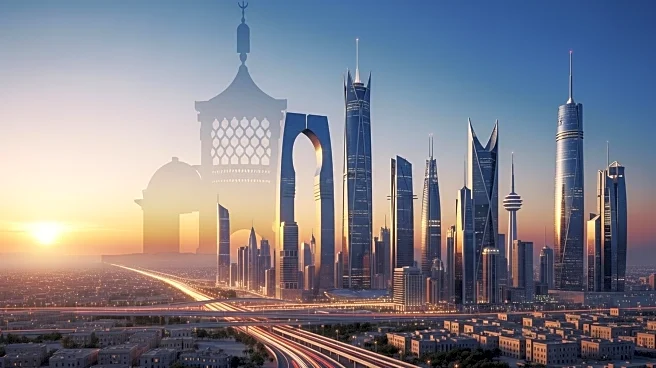What's Happening?
Saudi Arabia, under the leadership of Crown Prince Mohammed bin Salman, has been undergoing significant modernization reforms since 2016. These reforms are part of the Vision 2030 initiative, which aims to diversify the kingdom's economy away from oil dependency and introduce social changes. Key reforms include lifting restrictions on women, such as allowing them to drive, and opening up the country to entertainment and tourism. These changes are intended to create a more open and relaxed society, attracting foreign investment and tourism. Despite these efforts, the country still faces challenges related to free speech and human rights.
Why It's Important?
The reforms in Saudi Arabia are crucial for the kingdom's economic diversification and social liberalization. By reducing its reliance on oil, Saudi Arabia aims to build a more sustainable economy that can withstand global oil market fluctuations. The social changes are also significant as they aim to improve the quality of life for citizens and make the country more attractive to foreign investors and tourists. However, the reforms have not been universally accepted, with some conservative factions opposing the changes. The government's crackdown on dissent highlights ongoing tensions between modernization efforts and traditional values.
What's Next?
As Saudi Arabia continues to implement its Vision 2030 reforms, the kingdom will likely face increased scrutiny from the international community, especially regarding human rights and freedom of expression. The success of these reforms will depend on the government's ability to balance modernization with maintaining social stability. Additionally, Saudi Arabia's efforts to host major international events, such as the World Cup in 2034, will test its ability to present a more open and tolerant image to the world.
Beyond the Headlines
The reforms in Saudi Arabia could have long-term implications for the region, potentially influencing other Gulf states to pursue similar modernization efforts. The kingdom's shift towards a more open society may also impact its geopolitical relationships, as it seeks to position itself as a leader in the Middle East. However, the ongoing restrictions on free speech and human rights remain significant challenges that could hinder the full realization of the Vision 2030 goals.










